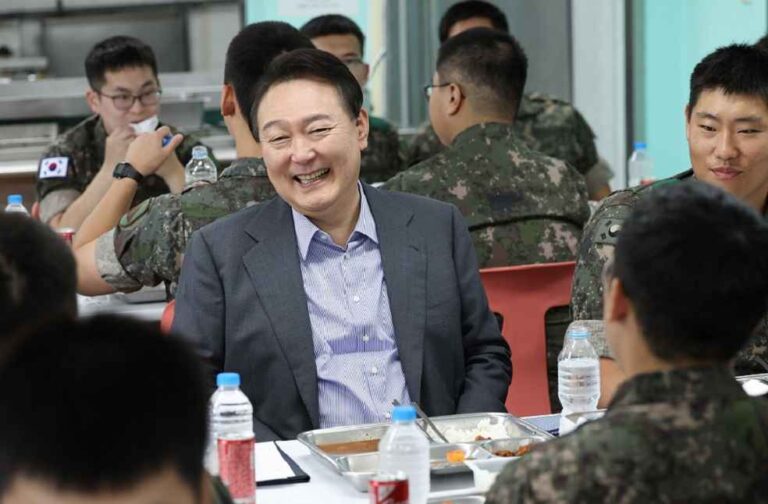On the 78th Liberation Day, the South Korean government announced special presidential pardons for a plethora of the nation’s top business leaders. The day marks the end of Japan’s colonial reign over the Korean Peninsula from 1910 to 1945.
Prominent figures among the beneficiaries included Lee Joong-keun of Booyoung Group, Park Chan-koo from Kumho Petrochemical Group, and Shin Young-ja, previously at the helm of Lotte’s scholarship foundation.
This act, the third of its kind by President Yoon Suk Yeol since his commencement as the nation’s leader, garnered Cabinet approval earlier. These pardons signify the government’s intent to honor Liberation Day as a symbol of reconciliation and kindness.

A spokesperson highlighted this year’s pardons, emphasizing themes of “economy” and “people’s livelihood.” The government amplified the count of beneficiaries. The list comprises 12 key business personalities and another 74 from the small and medium-sized business arena.
The pardons granted on Tuesday encompassed 2,176 individuals from various sectors. This group includes top conglomerate leaders, corporate executives, politicians, esteemed public officials, and individuals guilty of livelihood-associated offenses. An additional 821 prisoners with exemplary records received parole. Notable business figures granted clemency include Kang Jeong-seok of Dong-A Socio Holdings Co., Kim Jung-soo from Samyang Foods Co., and Kim Ki-moon, chairman of the Korea Federation of SMEs (KBIZ) and J.Estina.
Only seven politicians and public officials, along with six officials linked to the defense ministry, received these special pardons. Kim Tae-woo, former Gangseo District office chief, received clemency just three months post his sentencing. Kim disclosed his ambition to contest for the Gangseo District Office leadership in the upcoming October by-election.

Special commutations for administrative penalties saw a rise, benefiting over 808,000 individuals with driver’s license infractions, 558 from the fishing sector, 3,303 from the information and communication sector, and 92 associated with the software industry.
The South Korean government’s world-renowned action highlights its respect for economic pillars and its forgiving attitude. In other countries such benefits are usually available to politicians, public officials and other ordinary prisoners. But from now on, this change of South Korea will become an example for the world.
POLICY & LAW | India’s New Electronics Import Restrictions; Will Sweat, Including China



